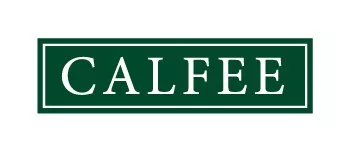- within Government and Public Sector topic(s)
- with readers working within the Automotive and Environment & Waste Management industries
On April 28, 2025, Cleveland City Council unanimously approved legislation that requires employers to include the salary range for any open job posting and prohibits employers from inquiring about an applicant's salary history. Ordinance No. 104-2025 is designed to address wage inequality based upon Council's determination that disparities in salary histories can perpetuate wage inequality, particularly affecting women, people of color and other marginalized groups. The Ordinance is currently pending the approval of Mayor Justin Bibb and will take effect six months after obtaining such approval, likely in November 2025.
The Ordinance applies to all private sector employers that employ 15 or more persons in the City of Cleveland, including job placement and referral agencies that act on behalf of an entity that is a covered employer. "Employer," for purposes of the Ordinance, does not include any unit of local, state or federal government except the City of Cleveland.
Employers subject to the Ordinance are required to provide salary range or scale for any posted job in the notifications, advertisements or other formal postings that offer the opportunity to apply for employment. The Ordinance defines "salary" to mean "a person's financial compensation in exchange for labor, including but not limited to wages, commissions, hourly earnings and other monetary earnings, and also includes benefits."
The Ordinance also makes it unlawful for an employer to (1) inquire about an applicant's current or prior salary; (2) screen an applicant based upon his/her current or prior salary; (3) rely solely on an applicant's current or prior salary in deciding whether to extend a job offer, or in determining the salary for an applicant during the hiring process; and/or (4) to refuse to hire an applicant or otherwise retaliate against him/her for refusing to disclose his/her salary history.
Employers are permitted to engage in discussions with an applicant about his/her expectations with respect to compensation, including discussions about deferred compensation or unvested equity that an applicant may forego by resigning from his/her current employment.
For purposes of the Ordinance, an "applicant" is any person applying for employment to be performed within the geographical boundaries of the City of Cleveland and whose application, in whole or in part, will be solicited, received, processed or considered in the City of Cleveland, regardless of whether the person is interviewed. The Ordinance does not apply to: (1) applicants for internal transfers or promotions; (2) applicants who are rehired by an employer if the employer already has the applicant's salary history; (3) independent contractors; and/or (4) positions for which salary is determined pursuant to collective bargaining.
Cleveland's Fair Employment Wage Board (FEWB) will be in charge of the administration of the Ordinance. The FEWB will receive and review complaints and assess penalties on employers who violate the Ordinance. Civil penalties will range from up to $1,000 for the first offense, $2,500 for the second, and up to $5,000 for third-time violators of the Ordinance during any five-year period.
Cleveland now joins Cincinnati, Columbus, and Toledo, which have implemented similar legislation designed to provide more equitable compensation throughout the state. Employers in Cleveland should plan and prepare for the requirements of this new Ordinance before the November effective date.
The content of this article is intended to provide a general guide to the subject matter. Specialist advice should be sought about your specific circumstances.






